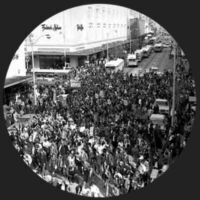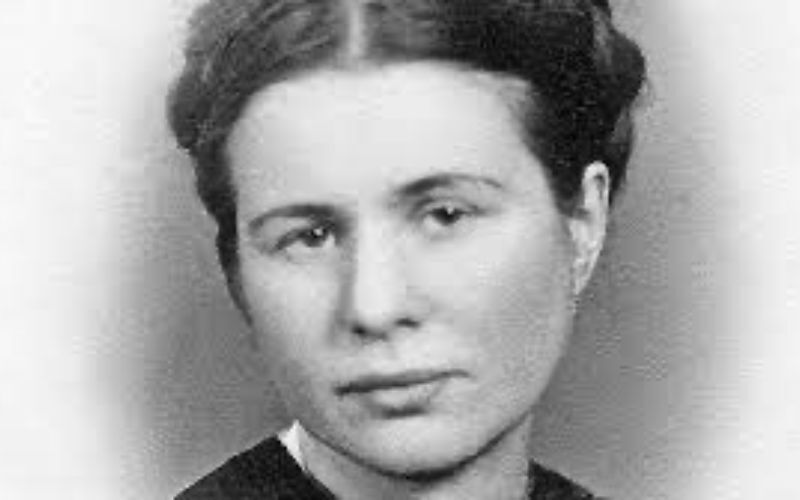The Vet and the Vietnam Moratorium

In August of 2006, I was a speaker at a veterans’ conference in Seattle. I told the story of my first arrest, in October of 1969, to those present, an audience of some 50 or 60 veterans, many of them from the Vietnam War. I looked back and remembered myself as a nineteen year old kid, full of self-righteous energy and disdain for anybody who disagreed with me, contempt for Ralph Hanson and Lyndon Johnson and my own parents, full of righteous anger directed at anyone who was in the military or in any way a part of the political superstructure that justified, supported, or funded the war. It would have been far from my consciousness on that long ago October morning, I said, to consider what might be going through a soldier’s mind, or what the sufferings of any soldier might amount to or how they might matter. I was sure I was right and that anybody who made any choice contrary to my own was morally wrong. I was a fool, I said, full of my own sanctified disapproval of soldiers and disdain for their sufferings.
I had been right to oppose the war. But I was wrong to oppose the warrior. I had failed to understand that soldiers themselves were victims of the war. I knew nothing of the sorrows of soldiers, of the fear and pain that attended their service and the nightmares that followed it. I was ignorant of their motivations and of the terrible cost they had borne and continued to bear. I had refused to grant them humanity, and in my refusal I had diminished my own humanity.
When I finished speaking, the first person to stand in the audience was a burly vet about my age. He was an ex-marine named Michael Patrick Brewer wearing a Veterans for Peace t-shirt. Michael was crying, and had trouble talking. He said that my story had opened his memory to a story of his own from that same time – October, 1969. And he said he had never told his story to anyone for 37 years. On that day he was a young active duty soldier, who had just returned from Vietnam after a year’s tour. He was in Chicago that day, only 100 miles away from Madison where I was. And he was also at an antiwar demonstration, part of the national Vietnam Moratorium. He was wearing his Marine uniform, and after much struggle and thought he had decided to speak at the demonstration.
Michael told us how he’d gone to the rally and up onto the platform where he had been invited. He knew just what he would say. He planned to make a short speech in which he would say that we needed to stop three kinds of hatred. We needed to stop hating the Vietnamese. We needed to stop hating each other. And we needed to stop hating ourselves. As he was waiting for his turn to speak, someone else on the platform saw his uniform and attacked him, screamed that he was a baby killer, and kicked him, driving him off the stage. He said he had never before spoken of his shame at being so treated.
“You know,” he said, “that was more traumatic to me than anything that happened to me in Vietnam in 1968 and 1969.”
After the workshop, Michael said to me, “You used the word ‘sanctified.’ You talked about your ‘sanctified disapproval.’ I’ve never heard anybody use that word before in that way. Nobody’s ever apologized to me for what happened that day. And I never knew how much it mattered to me. I’ve always known what I did the next day – I walked into Hines Hospital in Chicago looking for help for my sadness and depression, though I didn’t stay because they were just looking for guinea pigs to medicate. For some reason I never put those two events together until right now. I didn’t go for help again until October, 1997, the same month as the Moratorium. 28 years of repression. Ain't the brain amazing? When repression is perfect you can't find it.”
By giving me his forgiveness in so graceful and compassionate a way, Michael helped me understand that I was much in need of it. That day was important for both of us. As Michael told me, it was a big emotional “clear” for him, helping to close a chapter of his life in which he had difficulty trusting others or committing himself to being part of a community working for social change. He needed to hear how I had learned I was wrong, how much I wanted and needed to hear his story, and how I had come to feel compassion for him and other veterans. Michael needed to experience the liberation that came from forgiving me.
A gulf of perception, personal experience, expectation, and memory separates us from each other. On one side is who I am, my relationships, my pangs of hunger and desire, my terrifying loves and magnetic fears. On the other side are those others, like Michael, unknown and alien to me, whose emotions, experiences, and deepest beliefs I can only view “as through a glass, darkly.” Even as I tell myself the story of my life, it changes. The story finds new pathways, enters new dominions. I discover new metaphors to filter and explain my memories and reshape my learning. I discover new connections and synchronicities between myself and those whom I identified in the past as my opponents.
For my part, I needed help from Michael to reach across that gap. I needed Michael to tell me his story, and I needed him to hear mine without judging me. We both needed to understand deeply the fear and sadness that had motivated each of us. And then we could begin our lives anew, having reconfigured the gap, having changed each other and ourselves. We could become each other’s salvation. We could become each other’s brother.

